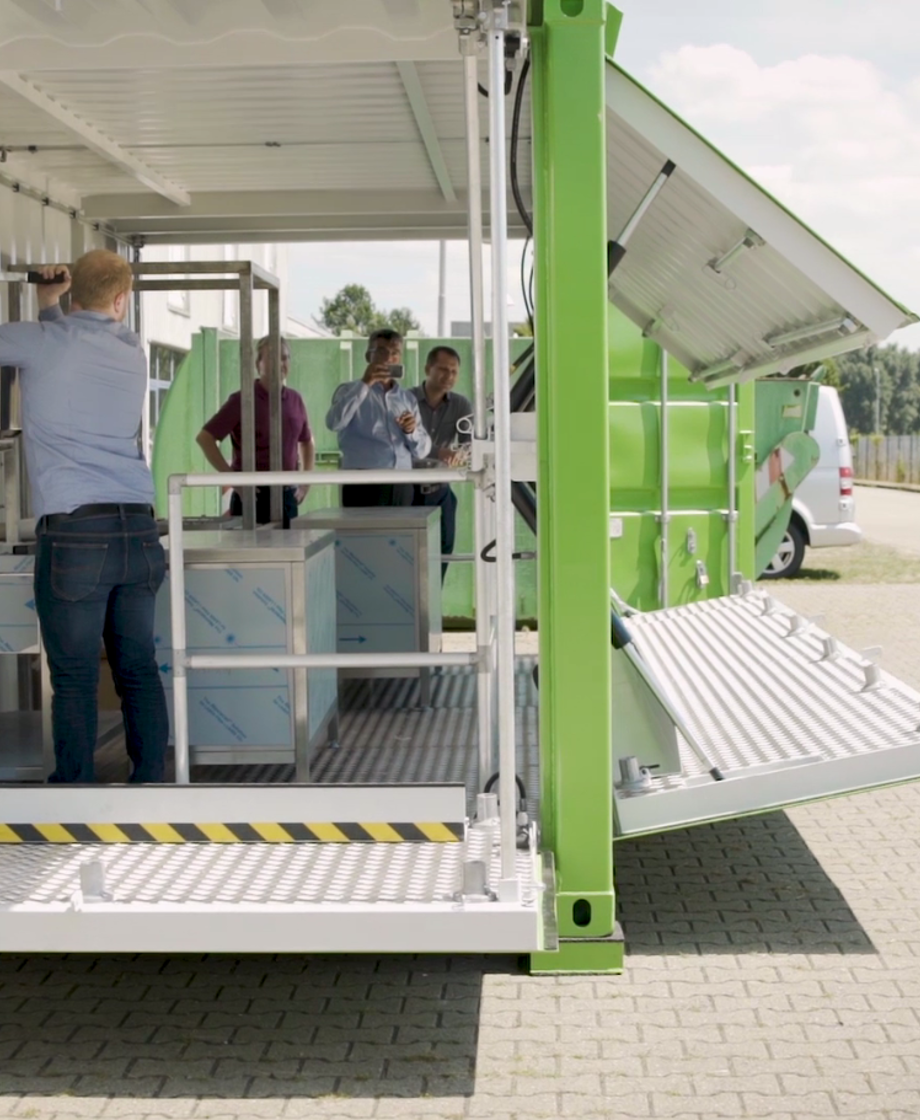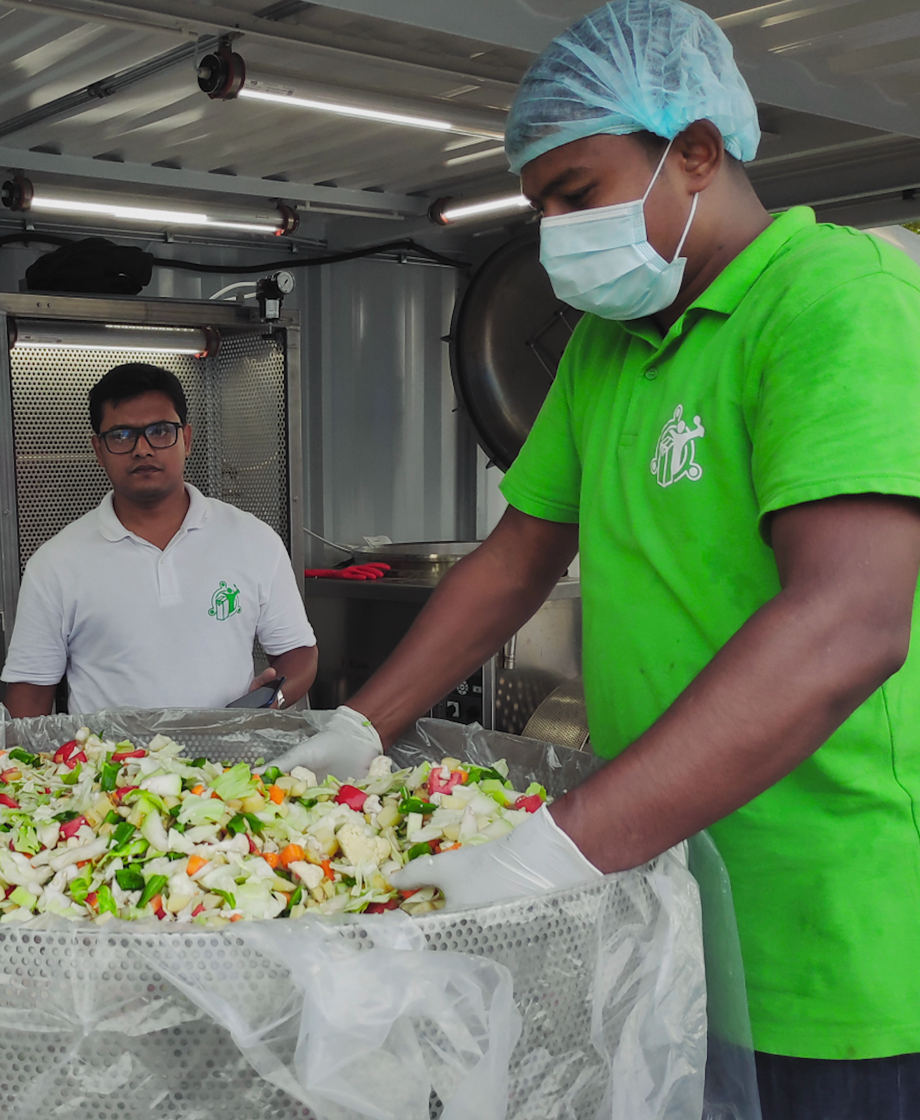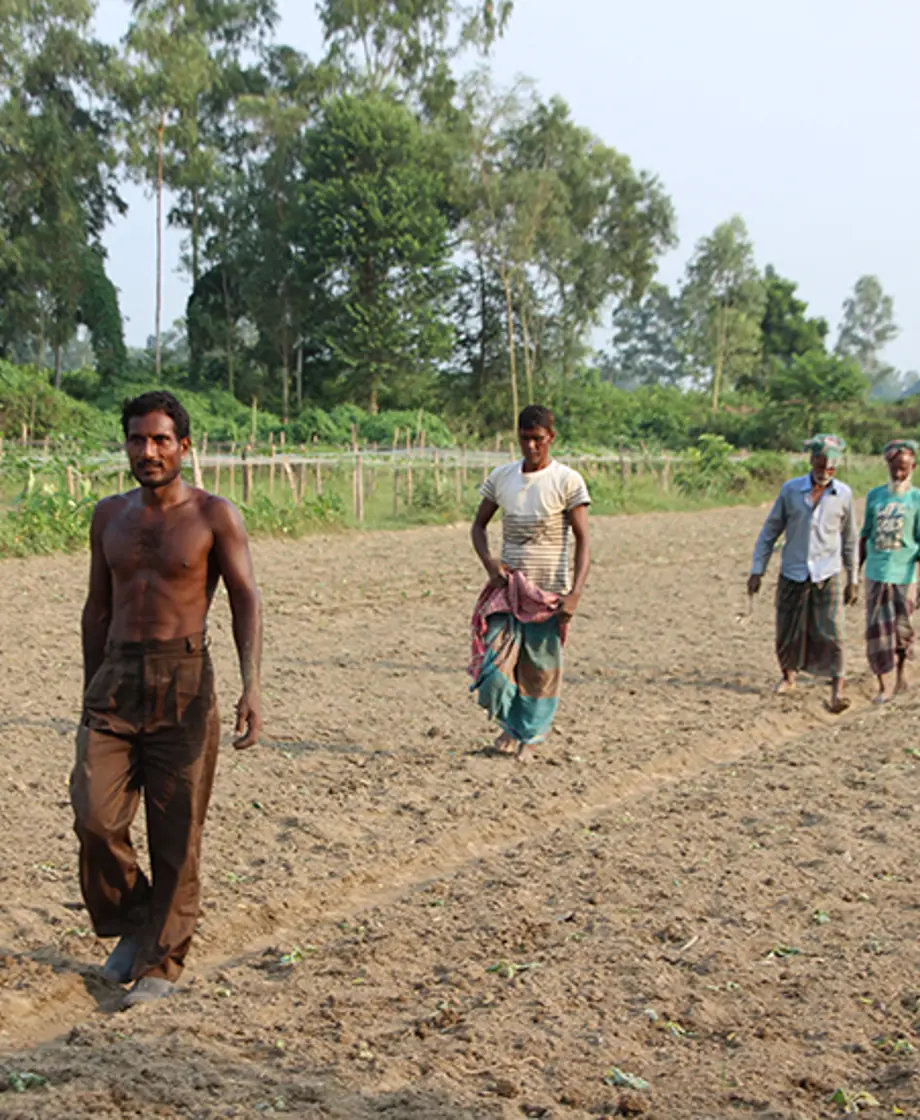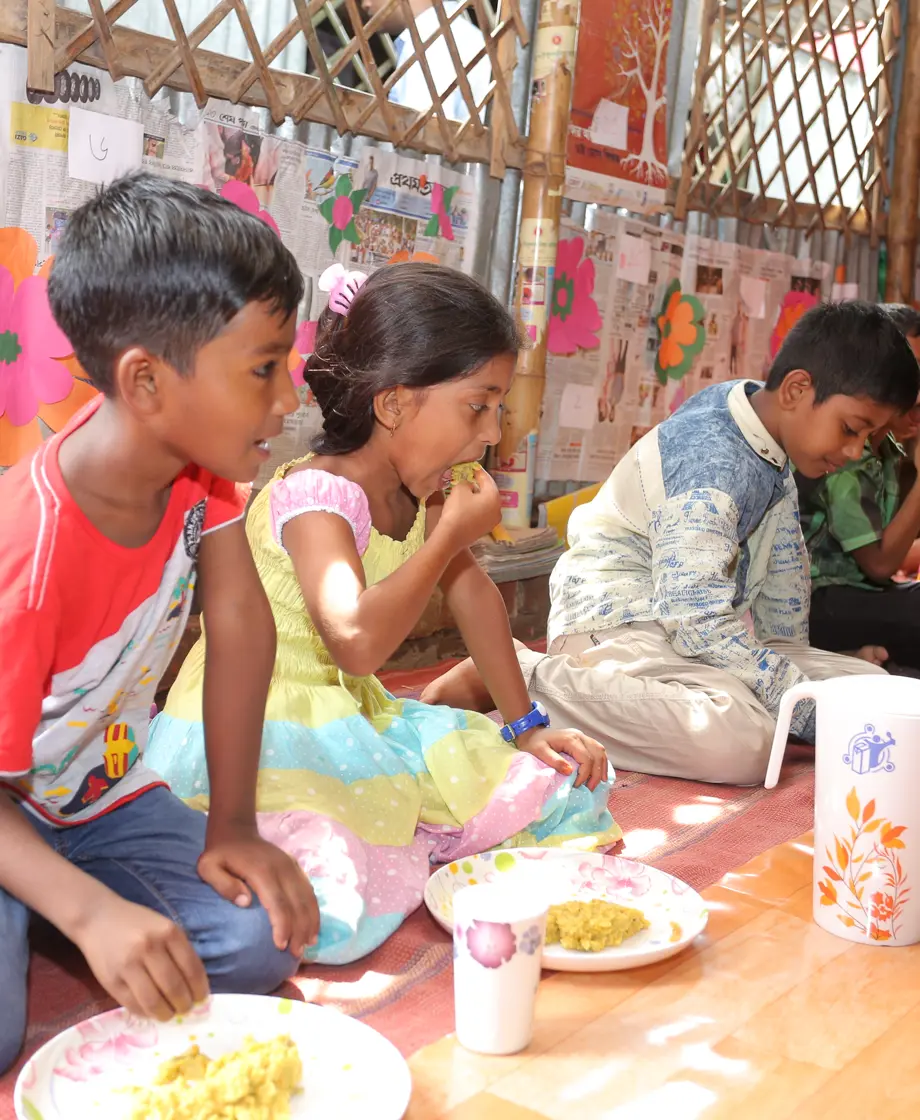The challenges
One third of all food produced for human consumption is lost¹.
At the same time, nearly 733 million people suffer from malnutrition².
Can we tackle both challenges together?
With the foundation’s Cartons for Good initiative and the use of SIGs technology, we preserve surplus food and improve the lives of people in need by providing healthy nutrition.
The idea
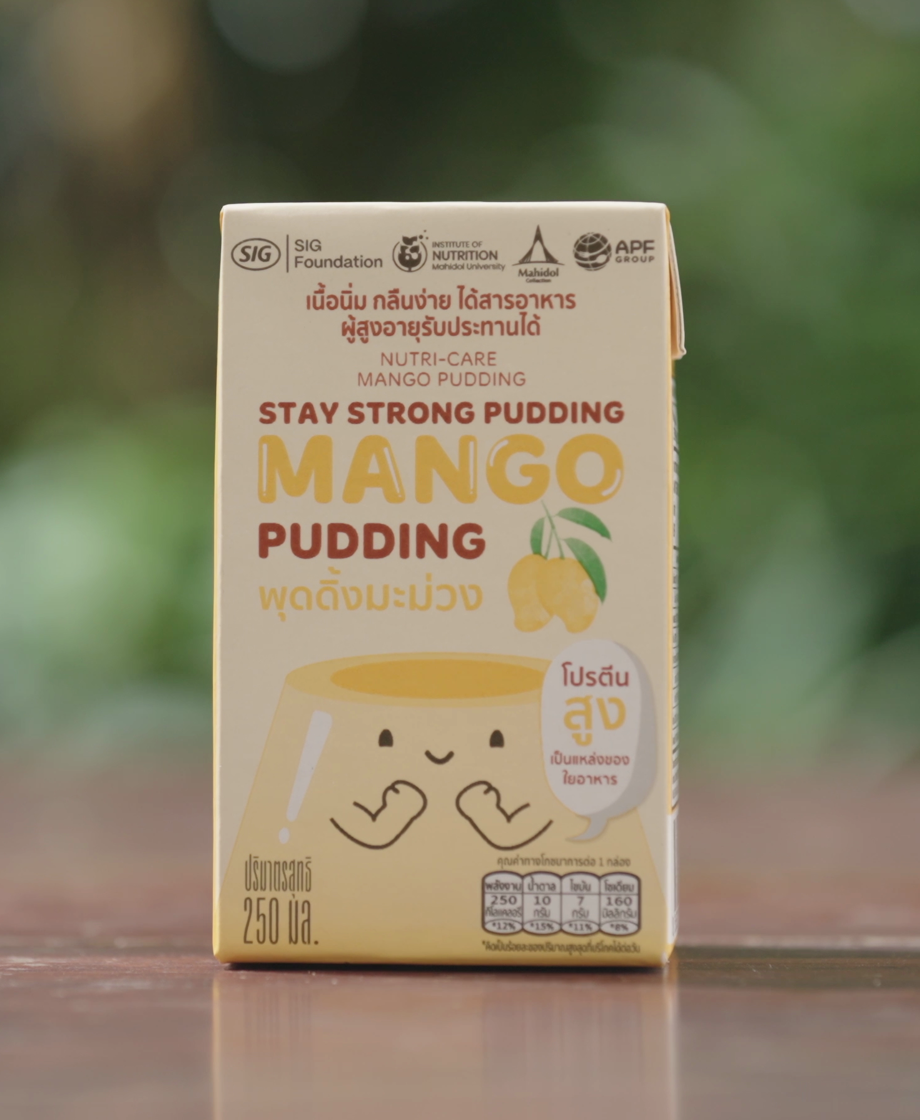
The Cartons for Good initiative, led by the SIG Foundation, is a visionary partnership with SIG customers and others designed to improve nutrition for people in need. Surplus products that would otherwise be lost are processed and packed using SIG’s filling technology to create safe, long-lasting products.
Cartons for Good in Thailand
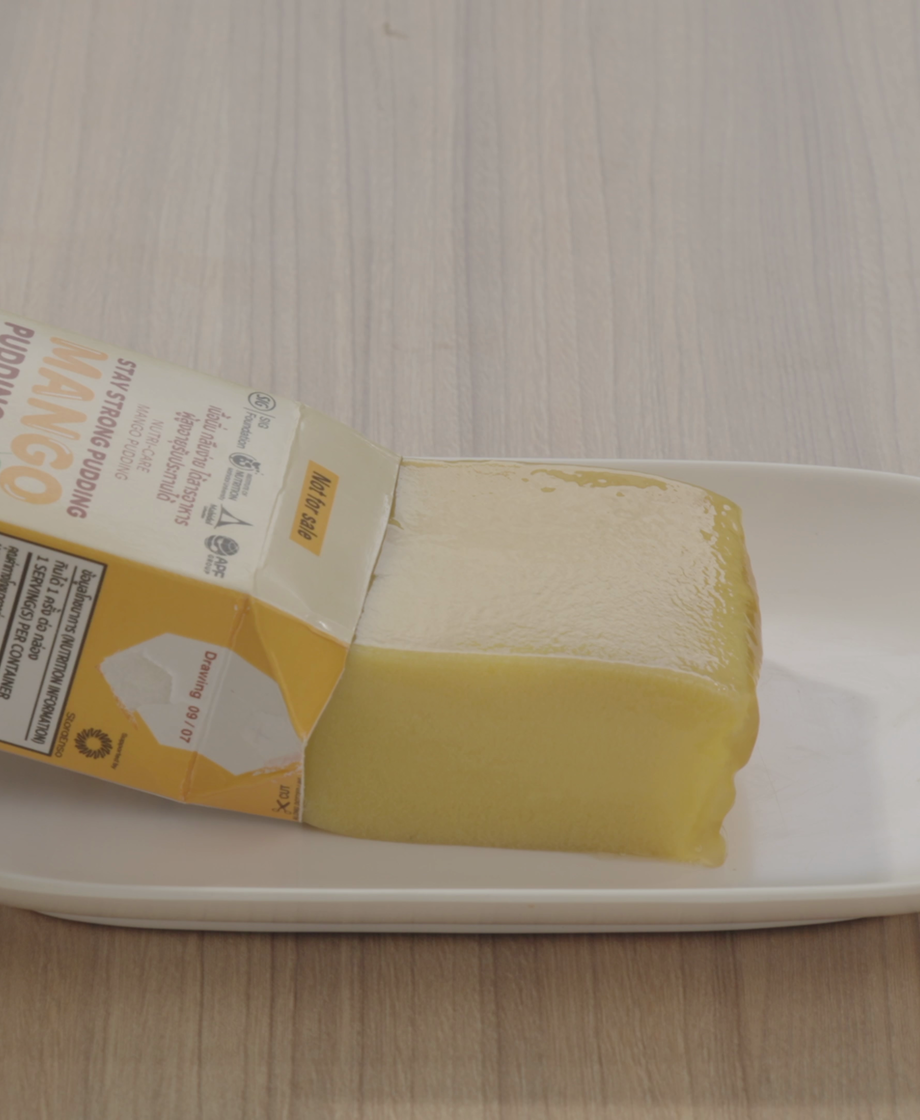
At this stage, the focus is on what truly matters: reaching more vulnerable people. Thanks to the efforts of Village Health Volunteers, 1,000 elderly households receive a nutritious pudding every day. This pudding has been specially developed for people with dental or swallowing difficulties. The pudding is delivered with trust, care and dignity.
How it works
1. Upcycling surplus fruit
The process begins with an analysis of food loss and malnutrition in the country. Based on these insights, a tailored concept is developed. Finally, surplus fruit is sourced from local farmers and upcycled into healthy, sustainable products.
2. Recipe development
The Institute of Nutrition at Mahidol University developed a product tailored to the dietary needs of elderly individuals, especially those with dental or swallowing difficulties.
3. Smart processing & packaging
Our local partner Ampol Food uses SIG’s aseptic technology to create soft pudding – safe for 12 months without refrigeration.
4. Trusted distribution
Village Health Volunteers deliver pudding directly to 1,000 elderly households daily – with dignity and care.
5. Closing the loop
Eco-Friendly Thailand and PRO Thailand recycle empty cartons, giving them a second life.
The impact
- Farmers earn income from produce that would otherwise go to waste.
- Nutritious food stays safe for 12 months without refrigeration.
- Vulnerable people receive the nourishment they lack.
- Packaging is collected and recycled.
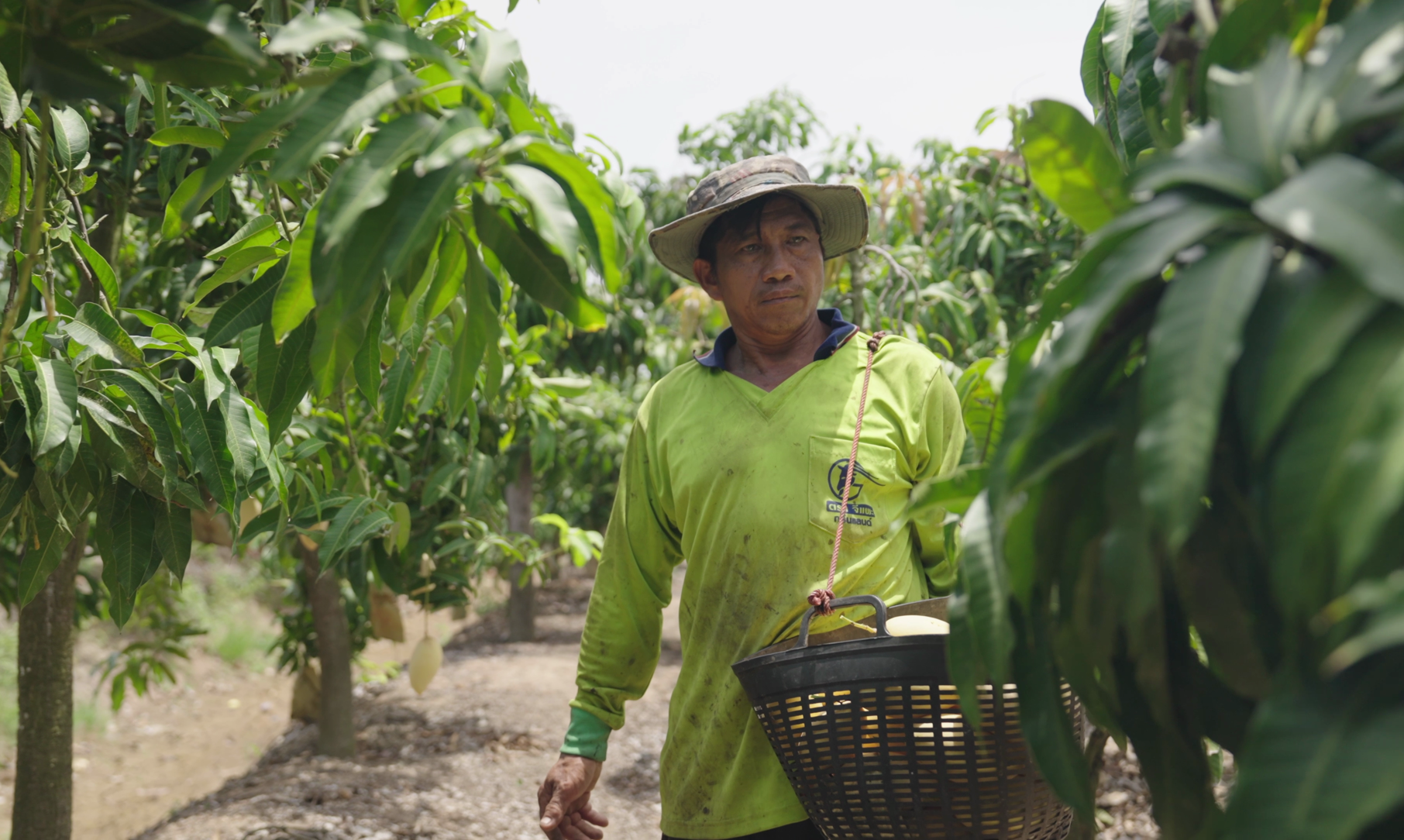
It’s time to scale up
Completing the cycle
Sustainability doesn’t end with what’s inside – cartons deserve a second life.
Cartons for Good promotes collection and recycling, turning used packs into new products such as shoeboxes and book covers.
With Eco-Friendly Thailand and PRO Thailand, recycling is secured, while clear fold-and-recycle instructions on each pack encourage participation.
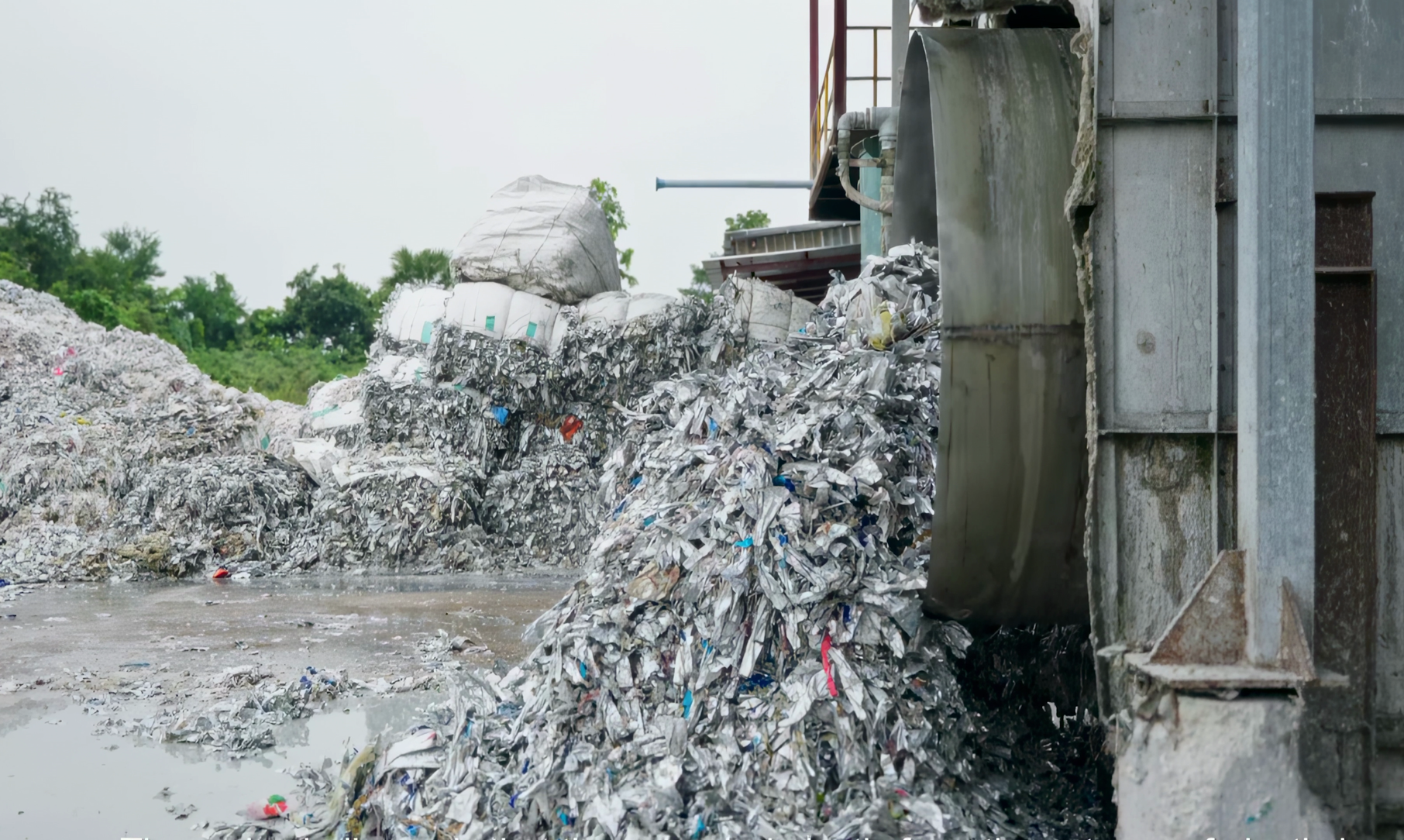
Join us in turning food loss into nutrition and making a real impact
Cartons for Good is more than a project – it's a transformative initiative tackling urgent challenges, building strong partnerships, and driving positive global impact through bold ideas and innovative technology.
Join us to deliver vital nutrition and reduce food loss. With your expertise, resources, or support, we can expand Cartons for Good to reach even more communities.
Together, we create lasting benefits for people and the planet. Let’s scale up – together!
Do you use SIG filling equipment and want to help save food and nourish those in need?



